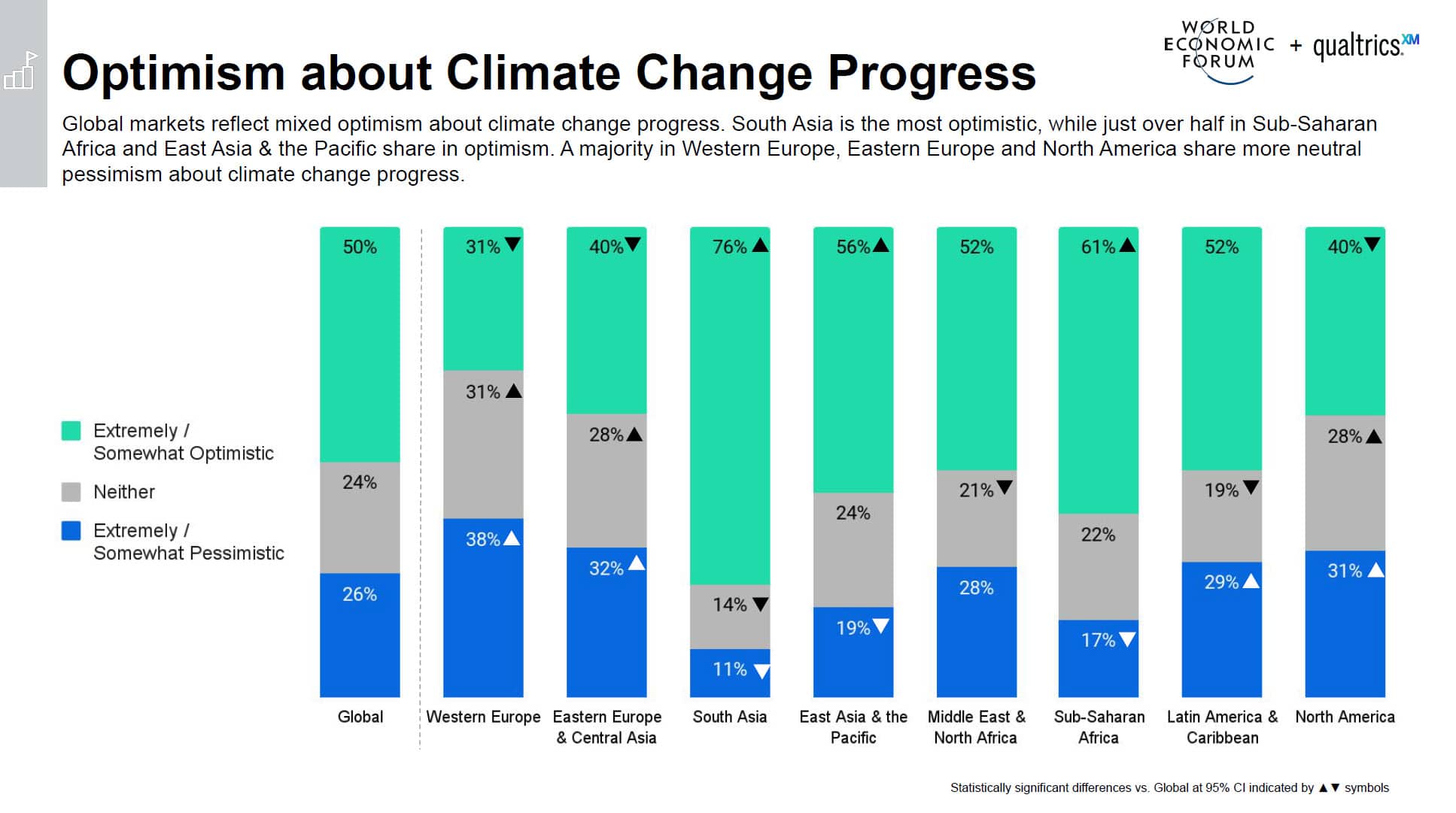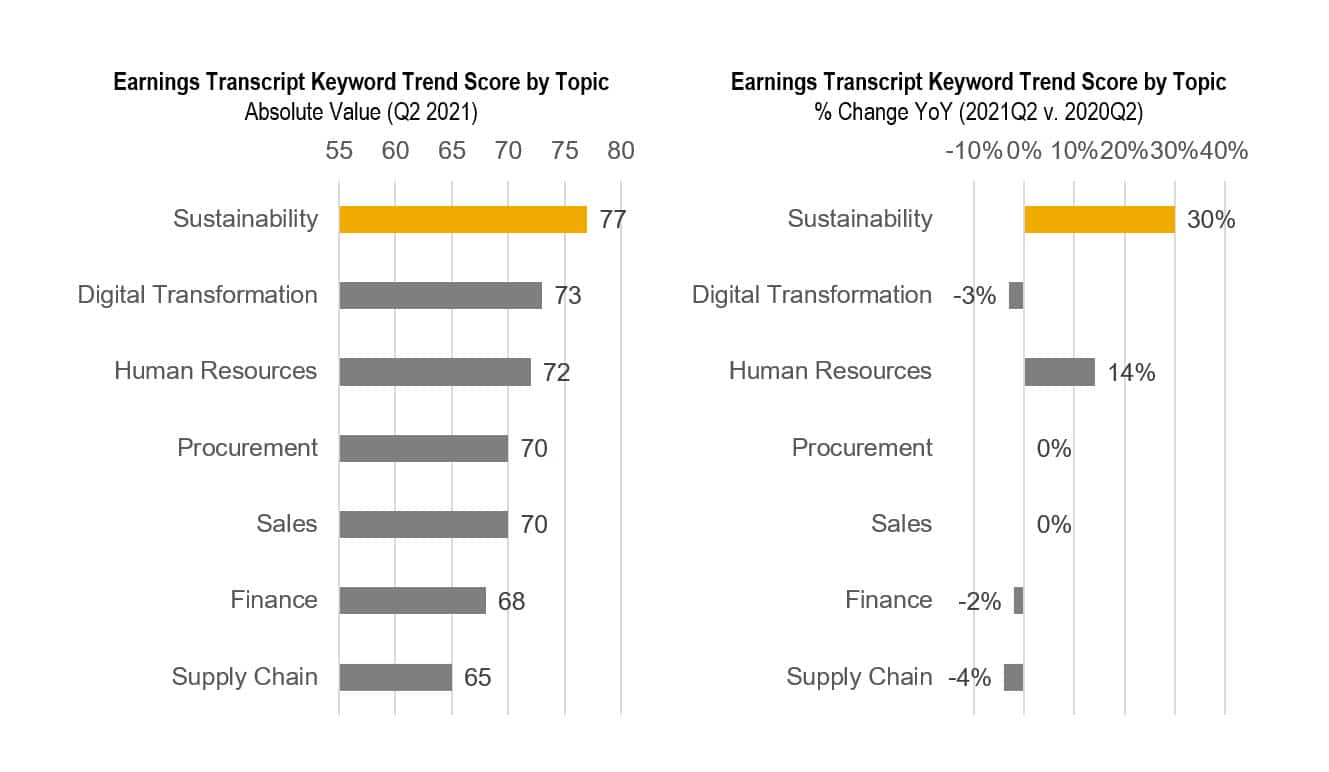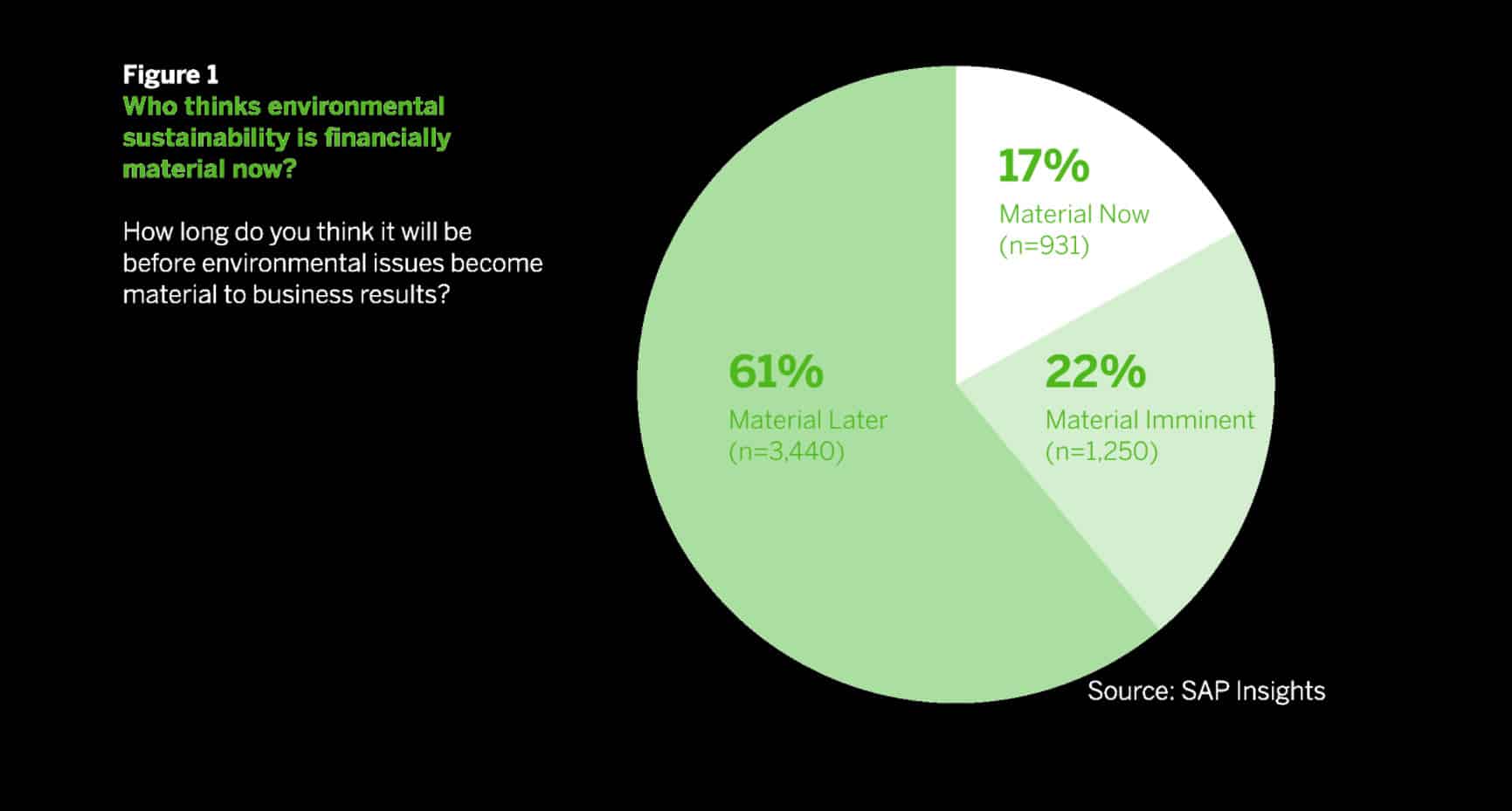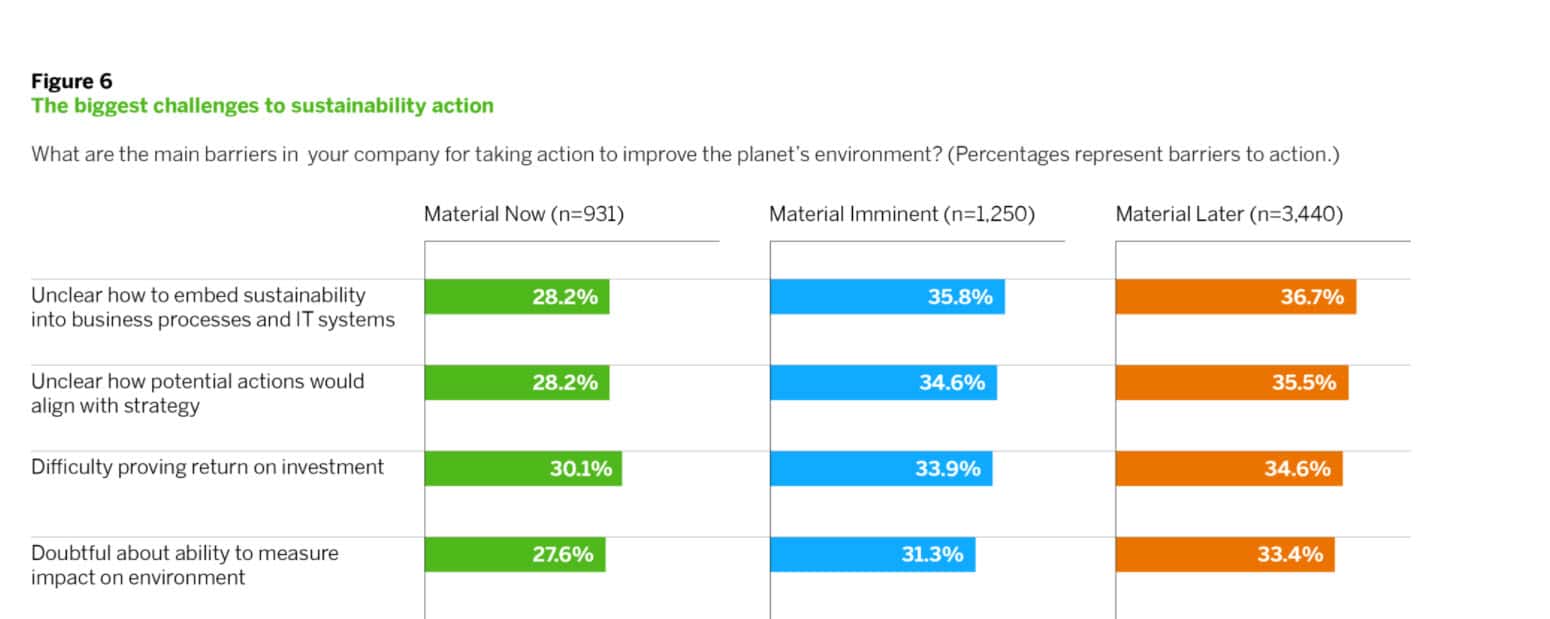We have arrived at a watershed moment in our planet’s history — a “code red for humanity” according to United Nations (UN) Secretary-General António Guterres — where significant and broad sustainability efforts are needed.
But successful action on sustainability requires a deep understanding of not only governmental priorities, but business and public sentiment as well.
Ahead of the UN Climate Change Conference (COP26) in Glasgow, SAP unveiled the results of three in-depth research studies that together highlight the state of sustainability perception and action across both the public and business ecosystem — as well as what needs to happen next.
Mandate for Change: What the World Thinks About Sustainability
Working with the World Economic Forum (WEF), SAP and Qualtrics polled a sample of the population across 28 countries in eight regions to understand their perceptions on sustainability and climate change in particular.
The WEF and Qualtrics study explores how changes in the public’s attitude toward sustainability are creating a mandate for change at governmental and organizational levels.
The results clearly show that citizens and consumers around the world are concerned about climate change and its global effects. While 85% of those surveyed believe it is extremely important to address climate change, just half (50%) are optimistic about climate change progress.
 In fact, while optimism is high in some regions, like South Asia (76%), other regions, like Western Europe (31%) or North America (40%), are less optimistic.
In fact, while optimism is high in some regions, like South Asia (76%), other regions, like Western Europe (31%) or North America (40%), are less optimistic.
Most people (68%) say they trust climate science and scientists, a number that is increasing year-on-year. However, one in four people (26%) say global warming either does not exist or is a natural process.
Most importantly, the research reveals a clear mandate from the global population to see more action. More than eight in 10 people (87%) say it is important for countries to work together to address climate change. In addition, 59% of respondents say their government is not doing enough when it comes to climate change.
 While most respondents agree that climate change needs to be addressed, just 28% say their country is prepared to address climate crises based on their COVID-19 response.
While most respondents agree that climate change needs to be addressed, just 28% say their country is prepared to address climate crises based on their COVID-19 response.
Download the WEF and Qualtrics research here.
Sustainability Imperative for Business
The good news is that the business community is aware of consumer opinion and is increasingly prioritizing sustainability at the board level. Together, SAP and AlphaSense created a sustainability sentiment barometer using AlphaSense’s artificial intelligence-powered regulatory disclosures database of more than 68,000 companies worldwide. The analysis looked at how companies present environmental, social, and governance (ESG) content in public announcements. See the full report here.
When it comes to ESG, the analysis shows that companies are making serious investments, conducting more reporting, disclosing more information, and increasingly updating shareholders on progress during earnings calls.
Sustainability is the highest trending topic in earnings calls across all business topics, followed by digital transformation. Sustainability has been spoken about 30% more year-on-year, up 44% since 2018. “Waste and pollution” is the most talked-about topic area, while CO2 emissions have seen the most year-on-year growth (+133%) as a topic area.
 While some industries show impressive C-suite focus on sustainability – including food and drinks, retail, pharmaceuticals and life sciences, and software and services – other verticals have work to do. Banking, semiconductor, and consumer services executives are talking about sustainability the least.
While some industries show impressive C-suite focus on sustainability – including food and drinks, retail, pharmaceuticals and life sciences, and software and services – other verticals have work to do. Banking, semiconductor, and consumer services executives are talking about sustainability the least.
Opportunity for Business: Proving Correlation Between Sustainability and Financial Impact
Encouraging a more consistent global C-suite focus on sustainability requires not only an ethical case, but a business case.
That is why SAP Insights recently conducted a global survey of business professionals about how sustainability affects business competitiveness and profits. The results reveal a clear correlation between sustainability and business performance.
The research shows that 80% of professionals knowledgeable about their organization’s sustainability activities see a positive relationship with long-term profitability, and 71% see a relationship with long-term competitiveness. While the long-term benefits of sustainability are not in doubt, a majority still do not see short- or medium-term benefits.
SAP found the majority of respondents feel sustainability is not yet material (83%), or financially relevant, to their business right now. Of that majority, 22% believe sustainability will be material to their businesses within five years, while 61% think sustainability is a longer-term issue and will become financially relevant more than five years from now. Only 17% say that sustainability is a material issue right now.
The results also show that significant opportunities are available for businesses. Leaders who say sustainability is financially relevant to their business today and have taken action (17% of companies) are achieving better business results compared with the rest.
 The SAP Insights research shows that while there is a cohort of businesses already successfully linking sustainability with financial success, there remains work to do for leaders to realize the opportunity sustainable business provides.
The SAP Insights research shows that while there is a cohort of businesses already successfully linking sustainability with financial success, there remains work to do for leaders to realize the opportunity sustainable business provides.
Sustainable Leadership Gap
What is making the difference for sustainably successful businesses? SAP research shows they have clear top-level buy-in, sustainability embedded into overall strategy, and effective use of technology.
The SAP Insights study reveals successful strategies to incorporate sustainability into business operations are driven from the top. Board or CEO environmental commitment was the leading motivator for action, above government regulation or corporate purpose.
That is not to say there aren’t hurdles to overcome. The top-three overall challenges to acting on environmental sustainability are lack of clarity on how companies should embed sustainability into processes and systems, difficulty in aligning their efforts with business strategy, and confirming return on investment (ROI) of the efforts.
 Businesses that see sustainability as materially relevant today say their leaders have assigned accountability for actions that improve the environment to 21% more roles across the organization. And they are investing more and faster. Nearly half (44%) say they intend to increase spending on sustainability investments over the next three years.
Businesses that see sustainability as materially relevant today say their leaders have assigned accountability for actions that improve the environment to 21% more roles across the organization. And they are investing more and faster. Nearly half (44%) say they intend to increase spending on sustainability investments over the next three years.
In total, respondents most frequently cited mitigating climate change as the priority investment is.
Learn more about the SAP Insights research here.
From Attention to Action: How to Come Together to Make Real Change
COP26 isn’t just a chance for world leaders to come together. While we need decisive political action to provide a mandate for change, businesses also need to step up and lead together with government, consumers, and other organizations. SAP is aiming for nothing less than a reinvention of the global economy.
This means putting sustainability at the heart of company strategies, not only to reduce negative impacts, but also to create regenerative systems. It means solving sustainability challenges in individual organizations as well as collectively across industries.
The status quo is not going to cut it. SAP has proven businesses that invest in sustainability and adopting leadership and innovation reap both environmental and financial rewards. But it will not be easy. Disconnected business processes and data that is distributed and difficult to access make it hard to approach sustainability strategically.
SAP helps solve these challenges and enable sustainable success by providing companies with the vision, processes, technology, and data to be more connected, compliant, efficient, and competitive.
Learn more about SAP’s commitment to sustainability, as well as a range of additional information, here, or contact Deborah Kaplan via email for more information.



